Story ideas, media briefings, and press releases specifically for media. If you are a journalist, you can subscribe to receive upcoming press releases by email.
Press Releases
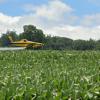
26 July 2021
How crushed rocks can help capture CO2
IIASA researchers and international colleagues explored the potential of using finely ground rock to help with the removal of CO2 from the atmosphere on the road to achieving net-zero emissions and keeping global warming below 1.5°C.
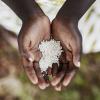
22 July 2021
Informing policy for long-term global food security
More than 820 million people in the world don’t have enough to eat, while climate change and increasing competition for land and water are further raising concerns about the future balance between food demand and supply. The results of a new IIASA-led study can be used to benchmark global food security projections and inform policy analysis and public debate on the future of food.
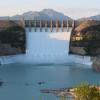
20 July 2021
The Indus basin: untapped potential for long-term energy storage
Hydropower has massive potential as a source of clean electricity, and the Indus basin can be a key player in fulfilling long-term energy storage demands across Africa, Asia, Europe, and the Middle East. IIASA researchers explored the role the Indus basin could play to support global sustainable development.

15 July 2021
Tracking COVID-19 across Europe
According to the World Health Organization, a third wave of COVID infections is now all but inevitable in Europe. A COVID tracker developed by IIASA researcher Asjad Naqvi, aims to identify, collect, and collate various official regional datasets for European countries, while also combining and homogenizing the data to help researchers and policymakers explore how the virus spreads.
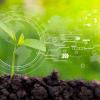
13 July 2021
Closing knowledge gaps for sustainable agriculture
IIASA is part of a project funded under the Belmont Forum’s joint Collaborative Research Action on Pathways to Sustainability to develop and apply an indicator system for measuring sustainability in the agricultural sector that will close existing knowledge gaps and facilitate decision making for more sustainable agricultural production.

08 July 2021
Dealing with global carbon debt
As atmospheric concentrations of CO2 continue to rise, we are putting future generations at risk of having to deal with a massive carbon debt. IIASA researchers and international colleagues are calling for immediate action to establish responsibility for carbon debt by implementing carbon removal obligations, for example, during the upcoming revision of the EU Emissions Trading Scheme.

01 July 2021
Platforms for profit and purpose
Digital platforms are changing the way we do business. IIASA has been involved in a six-year research project to understand the consequences of this shift, including how platforms can improve resilience in an uncertain world.
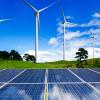
30 June 2021
Put people at the heart of energy transition policies, say EU Chief Scientific Advisors
Earlier this week, the European Commission’s Group of Chief Scientific Advisors (GCSA) delivered a Scientific Opinion on a systemic approach to the energy transition in Europe in which they provide policy recommendations on how the commission can contribute, accelerate, and facilitate the clean energy transition at the European and global level.
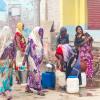
25 June 2021
Assessing the risks of human displacement in a changing climate
Each year, disasters force millions of people to move from their homes, with profound human and financial consequences, and climate change is making the situation worse. But recent work involving novel modeling and new data makes it possible to assess these risks and prepare for them.
